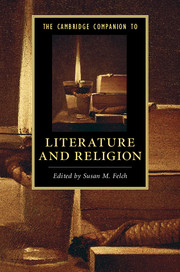Book contents
- Frontmatter
- Epigraph
- Contents
- Notes on Contributors
- Chronology of Religious Founders and Texts
- Introduction
- PART I READING PRACTICES
- PART II INTERSECTIONS
- PART III TRADITIONS
- 9 Hinduism
- 10 Buddhism
- 11 Judaism
- 12 Eastern Orthodoxy
- 13 Roman Catholicism
- 14 Islam
- 15 Protestantism
- 16 World Christianity
- Select Bibliography
- Index
- Miscellaneous Endmatter
10 - Buddhism
from PART III - TRADITIONS
Published online by Cambridge University Press: 05 September 2016
- Frontmatter
- Epigraph
- Contents
- Notes on Contributors
- Chronology of Religious Founders and Texts
- Introduction
- PART I READING PRACTICES
- PART II INTERSECTIONS
- PART III TRADITIONS
- 9 Hinduism
- 10 Buddhism
- 11 Judaism
- 12 Eastern Orthodoxy
- 13 Roman Catholicism
- 14 Islam
- 15 Protestantism
- 16 World Christianity
- Select Bibliography
- Index
- Miscellaneous Endmatter
Summary
The modern study of Buddhism reflects the values of Western and Westernized scholars, values that determine why certain texts are selected to represent the tradition and what it means to read religiously. Many people in the West naïvely presume that religious texts can be understood just by reading them. The plausibility of this presumption is supported by cultural familiarity with the biblical narratives. Someone raised in a Euro-American religious culture can pick up the Bible or other Christian religious literature and read it without scholarly paraphernalia. This presumption, however, is not valid when approaching the majority of non-Western religious texts, even in translation. Buddhist texts, and indeed the majority of non-Western religious literatures, require readers to become familiar with cultural traditions and reading practices markedly divergent from their own. When Buddhist texts are read on the basis of their congeniality with core Western values such as individualism, egalitarianism, and simplicity, they are, quite simply, misused. A similar problem occurs with selection: the familiarity of texts such as Dhammapada, the Diamond Sutra, and the Tibetan Book of the Dead means that they have already been interpreted into a religious discourse about texts, textuality, and reading that is informed by Christian preconceptions. As such, they do little to challenge the presumptions that privilege a certain set of ideas about faith, practice, identity, time, and so on, themes constitutive of one kind of religious existence, but themes neither universal nor universalizable.
To understand a text in its Buddhist context, it is important to recognize the systems according to which Buddhist thinkers have themselves organized their textual heritage. The large mass of Buddhist literature has led both traditional and modern scholars to create multiple canons, systems of organization, and bibliographic categories. One basic categorization of Buddhist literature is that of the “three baskets” (tripiṭaka): discourses or teaching stories (sūtras), rules of the order (vinaya), and the higher teachings (abhidharma). Gregory Schopen has noted that the metaphor of basket was in use prior to the creation of written texts, so the image, delightful as it otherwise is, of the three collections being transported in three baskets cannot be historically accurate.
- Type
- Chapter
- Information
- The Cambridge Companion to Literature and Religion , pp. 169 - 185Publisher: Cambridge University PressPrint publication year: 2016



